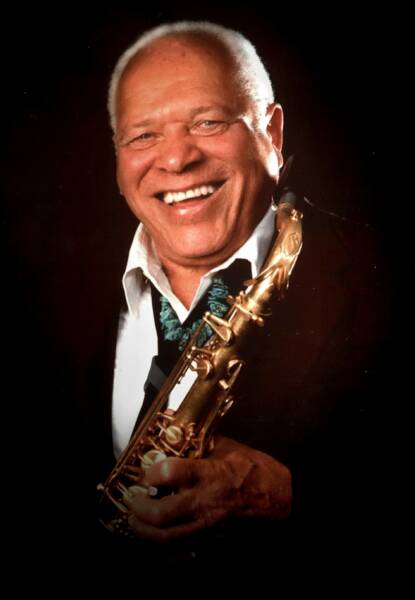South Bend Tribune
November 6, 2008
Detroit Jazzman Honors Jackson
By HOWARD DUKES
Tribune Staff Writer
Trumpeter Marcus Belgrave didn’t get a chance to attend Franz Jackson’s 95th birthday bash in November of 2007.
“I had another engagement in Detroit on that day,” he says about missing what turned out to be one of Jackson’s last public appearances before his death on May 6.
Instead, the Detroit-based trumpeter will bring his Marcus Belgrave Jazz Experience to the Wood Fire Trattoria on Saturday night for a benefit in Jackson’s honor.
Slow ticket sales, however, forced Michelle Jewell, who is Jackson’s daughter and the event’s organizer, to cancel the concert earlier this week — until Belgrave told her, in effect, that the show would go on, so Jewell moved it from the Dowagiac Middle School Performing Arts Center to the Woodfire.
Joan Belgrave, who sings with the Marcus Belgrave Experience and is Marcus’ wife, says Jackson’s commitment to the music explains why her husband wanted to do the show.
“We (felt) that Franz’s contribution to music and life made this event more important than ticket sales or profit,” Joan Belgrave says in an e-mail sent to The Tribune. “We felt that it was the least we could do to honor such a wonderful human being and such a gifted, kind-spirited, giving musician who taught so many through just being himself. We couldn't let something in his honor fall by the wayside due to the current financial state.”
Proceeds from the concert will be used to finance a jazz festival held in Jackson’s honor. Organizers hope the inaugural festival will be held in 2009.
Jackson remained on the stage for his entire birthday concert, according to several people who attended the event, which featured about 20 jazz artists taking turns as performers.
Belgrave says he’s not surprised.
“He came and played with me at an engagement in Chicago,” he says. “He was supposed to just sit in for one set, but he played for the entire night.”
Belgrave and Jackson performed together many times since they first met professionally in 1984.
“I think what I liked about Franz was his stage presence,” Belgrave says. “Also, he was not hesitant at all. He was in the tradition of all of the great tenor saxophone players.”
Belgrave says that Jackson might not have been as well-known by the public as such tenor sax players as John Coltrane or Sonny Rollins, but he was highly regarded by other musicians.
“And around Chicago, Franz was one of the kings of the tenor sax,” he says.
Belgrave has shared the stage with plenty of legends, including Ray Charles and be-bop players such as Dizzy Gillespie, Charles Mingus and McCoy Tyner.
Belgrave actually hoped to play be-bop until he heard a Ray Charles record, and he then decided he wanted to play with Charles.
Belgrave got his chance, and then he returned to Detroit and became one of the musicians that gave the music of Motown its classic sound.
“I was on the road with Ray Charles in 1958 and ’59, and we’d run into the (performers who would eventually join) the Motown camp all the time,” Belgrave says. “In fact, Smokey Robinson and the Four Tops were jazz singers.”
Belgrave left Ray Charles in the early 1960s — right around the time when Berry Gordy was about to introduce the Motown label to the world. Gordy asked Belgrave to become one of the label’s studio musicians. Those musicians — collectively known as the Funk Brothers — were immortalized in the documentary film “Standing in the Shadows of Motown,” which includes Belgrave as one of the musicians interviewed.
Belgrave was one of the musicians in the lineup that recorded such classic Motown hits as “Dancing in the Street,” “My Girl” and “ The Way You Do the Things You Do.”
Belgrave says Gordy recruited only the best musicians. Nearly all of them were elite jazz and blues musicians looking for additional work as rock and R&B music supplanted jazz in popularity.
“Berry was smart to get all of those jazz musicians,” Belgrave says, “because we knew what to do.”
These days, Belgrave spends most of his time in the jazz world. He is on the music faculty at Oberlin College and was an original faculty member of Oakland University’s Jazz Studies Program. Belgrave also was a founding member of the Jazz at Lincoln Center Orchestra.
He says he found playing R&B and jazz rewarding.
“In jazz, there is more freedom, and that gave me more opportunity to play,” he says. “But I also enjoyed the camaraderie I had with Motown. I played with some great musicians, and I played behind a lot of great singers.”
Staff writer Howard Dukes
hdukes@sbtinfo.com
(574) 235-6369
